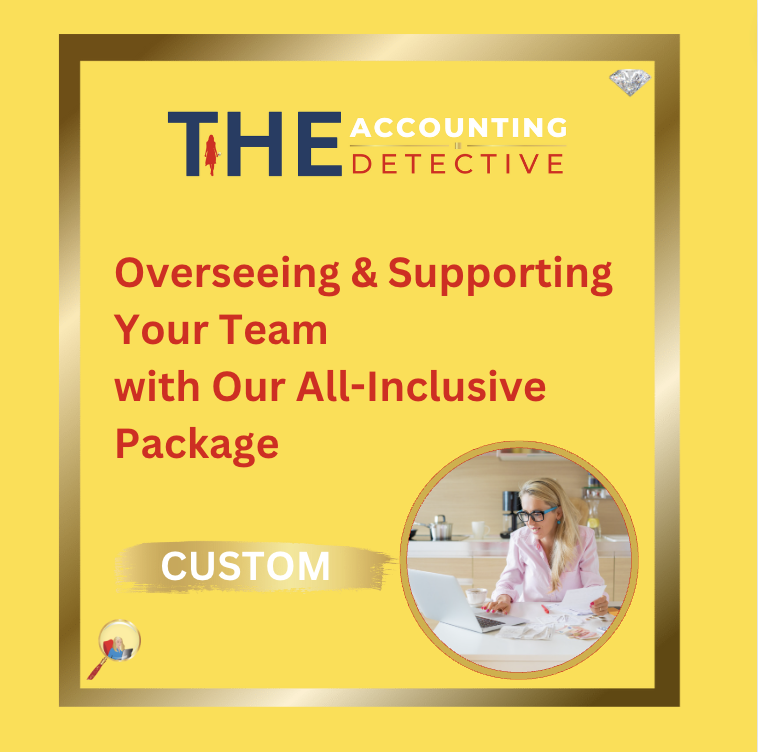Top 5 Characteristics of a Successful Controller: Hiring the Right Financial Leader.
TOP 5 CHARACTERISTICS of a Successful Controller: hiring the right financial leader.
Financial Controls Are Designed to Help Managers: Discover the 5 Essential Traits to Consider When Hiring a Controller for Financial Leadership.

Controller
TOP 5 Traits
The role of a controller is crucial for any organization. As the financial leader of the company, they are responsible for managing and overseeing all financial tasks and decisions. But what exactly should you look for when hiring a controller? In this article, we will explore the top five traits that you should seek in a controller to ensure that you are hiring the right financial leader for your organization.
What is a Corporate Controller?
A Corporate Controller is a senior executive who manages the financial activities of a company. They play a central role in financial management, providing accurate and timely information for decision-making. The Corporate Controller oversees accounting, budgeting, financial reporting, and internal controls. Their aim is to ensure the organization’s financial stability and compliance with applicable laws and regulations.
Let’s dive deeper into the responsibilities of a Corporate Controller. One of their primary tasks is managing the company’s accounting function. This includes overseeing the preparation of financial statements, such as the balance sheet, income statement, and cash flow statement. They ensure that these statements accurately reflect the company’s financial position and performance.
In addition to financial reporting, the Corporate Controller is responsible for budgeting and forecasting. They work closely with department heads and executives to develop realistic budgets and financial plans. By analyzing historical data and market trends, they provide valuable insights and recommendations for improving the company’s financial performance.
Another critical aspect of a Corporate Controller’s role is maintaining internal controls. They establish and enforce policies and procedures to safeguard the company’s assets and prevent fraud or misappropriation of funds. This involves implementing segregation of duties, conducting regular audits, and monitoring compliance with financial regulations.
Furthermore, the Corporate Controller plays a vital role in managing the company’s relationships with external stakeholders, such as auditors, investors, and regulatory authorities. They coordinate the annual audit process, ensuring that the company’s financial statements are audited by independent professionals. They also provide financial information to investors and regulatory agencies, ensuring transparency and compliance.
As the financial landscape evolves, Corporate Controllers must stay updated on changes in accounting standards and regulations. They continuously assess the impact of these changes on the company’s financial reporting and implement necessary adjustments. By staying ahead of industry trends and best practices, they contribute to the company’s long-term financial success.
Attributes to Seek in a Financial Leader
When searching for a controller, it is essential to identify specific attributes that will contribute to their success in the role. While technical skills are important, there are also several other qualities to consider. A strong controller should possess excellent leadership and communication skills, as they will often be working closely with various departments and stakeholders. Leadership skills are crucial for a financial leader as they need to guide and motivate their team towards achieving the organization’s financial goals. A great leader understands how to delegate tasks effectively, empower their team members, and foster a collaborative work environment. They should be able to inspire trust and confidence in their team, enabling them to perform at their best.
Communication skills are equally important for a financial leader. They need to be able to convey complex financial information in a clear and concise manner to non-financial stakeholders. This includes presenting financial reports, explaining budgetary decisions, and providing guidance on financial strategies. Effective communication ensures that everyone is on the same page and enables informed decision-making across the organization.
Additionally, a successful controller should have a strategic mindset and be able to analyze financial data to make informed decisions. They should possess a deep understanding of financial statements, budgeting, forecasting, and financial modeling. By analyzing financial data, they can identify trends, risks, and opportunities, which allows them to develop effective financial strategies and drive the organization’s growth.
Furthermore, a good controller should be detail-oriented, as accuracy is crucial in financial reporting and compliance. They need to have a meticulous approach when reviewing financial documents, ensuring that all numbers and calculations are correct. Attention to detail helps to minimize errors, maintain the integrity of financial information, and comply with regulatory requirements.
Lastly, a financial leader should be adaptable and able to handle unexpected challenges or changes in the business environment. The financial landscape is constantly evolving, and controllers need to be able to navigate through uncertainties and adapt their strategies accordingly. They should be proactive in identifying potential risks and developing contingency plans to mitigate them. Adaptable leaders can guide their organization through changing market conditions and ensure its long-term financial stability.
Evaluating Qualifications: What to Look for in a Controller
When evaluating qualifications, it is important to assess both technical expertise and industry experience. A controller should have a strong educational background in finance or accounting and possess certifications such as a Certified Public Accountant (CPA) or Certified Management Accountant (CMA).
Industry experience is also valuable as it helps controllers understand the unique challenges and regulations of specific sectors. However, it is important not to overlook the potential for transferable skills. Someone with relevant experience in a different industry may bring fresh perspectives and innovative ideas to the position.
What to Prioritize When Hiring a Controller
When hiring a controller, it is important to prioritize several factors to ensure the best fit for your organization. Consider the candidate’s technical expertise, industry experience, and their alignment with your organization’s values and culture.
Additionally, evaluate the candidate’s ability to collaborate and build relationships with other departments and stakeholders. A controller must be able to communicate effectively and foster positive working relationships throughout the organization.

Our The Dostoyevsky Package is designed to provide monthly bookkeeping + controller services to small businesses and startups and organize financials for family offices and small business projects to streamline business processes. With our services, you can Elevate Your Financial Strategy and Empower Your Accounting.


Top 5 Characteristics of an Effective Controller
Integrity and Ethical Behavior: A controller handles sensitive financial information and must adhere to strict ethical standards. Look for candidates with a track record of honesty and integrity in their previous roles.
Analytical and Problem-Solving Skills: Financial decisions often require data analysis and problem-solving. Seek controllers who can think critically and make sound judgments based on available information.
Attention to Detail: Financial management demands precision and accuracy. A controller with excellent attention to detail will ensure that financial records are error-free and compliant with regulations.
Leadership and Communication Abilities: Controllers interact with colleagues across various levels of the organization. Look for candidates who can effectively communicate financial information and inspire and guide their team.
Adaptability and Flexibility: A successful controller must be adaptable to changing business environments and be able to handle unexpected challenges. Seek candidates who have demonstrated resilience and the ability to adjust their strategies accordingly.
The Most Important Traits to Look for in a Controller
While all the traits mentioned above are crucial, some are particularly important for a controller’s success. The most essential trait is integrity. A controller deals with sensitive financial information and holds a position of trust within the organization. Hiring someone with a strong character and a commitment to ethical conduct is essential. Additionally, analytical and problem-solving skills are vital for a controller’s ability to navigate complex financial challenges. Look for candidates with a track record of effectively analyzing and interpreting financial data to inform strategic decision-making.

How to Identify the Right Controller for Your Organization
Identifying the right controller for your organization is a multifaceted process. Start by clearly defining your organization’s specific needs, goals, and values. This will help you align your search criteria with your organization’s objectives. Next, create a comprehensive job description that outlines the desired skills, qualifications, and responsibilities. When reviewing applications and conducting interviews, focus on candidates who demonstrate a strong alignment with your organization’s values and mission.
During the interview process, ask situational and behavioral questions to gauge the candidate’s problem-solving abilities, leadership skills, and ability to adapt to change. It can also be helpful to include a skills assessment or case study that simulates real-world scenarios to assess candidates’ competence in handling financial tasks.
Crucial Skills and Qualities for a Controller
Controllers require a diverse set of skills and qualities to succeed in their roles. Apart from technical expertise in finance and accounting, controllers should have strong analytical and problem-solving skills to make data-driven decisions. Attention to detail is also paramount, as controllers are responsible for accuracy in financial reporting and compliance. Effective communication and leadership abilities are crucial for building and leading a high-performing finance team.
Controllers should also possess a strategic mindset and be able to identify opportunities for growth and improvement within the organization’s financial operations. Finally, adaptability and flexibility are essential traits given the ever-changing nature of the business environment.
Finding the Right Controller: What to Consider
When finding the right controller, it is important to consider the specific needs and goals of your organization. Reflect on the size, industry, and complexity of your business to help identify the ideal candidate. Consider the desired level of experience and technical expertise needed to manage financial operations effectively. Additionally, assess how well the candidate’s values and leadership style align with your organization’s culture. Don’t forget to obtain references to gain insights into the candidate’s performance and reputation. Talk to previous supervisors and colleagues to gather information about their strengths, weaknesses, and overall fit for the role.
Strategies for Identifying the Right Financial Leader
Identifying the right financial leader for your organization requires a strategic approach. Start by clearly defining your expectations and requirements for the role. This will help you narrow down your search criteria and focus on candidates who possess the necessary skills and experience. Networking and referrals can also be powerful tools in identifying potential candidates. Reach out to industry professionals, attend networking events, and leverage your professional network to find qualified individuals.
Additionally, consider partnering with a specialized recruitment agency (we recommend GreySource) that understands the unique requirements of a financial leadership position. They can help streamline the hiring process and provide access to a larger pool of qualified candidates.
Making a Smart Hiring Decision: Attributes of a Controller
When making a hiring decision for a controller position, it is important to keep in mind the essential attributes that contribute to a successful financial leader. Look for candidates with a combination of technical expertise, leadership abilities, and strong ethics. Consider each candidate’s unique strengths and how they align with your organization’s needs. A well-rounded controller should possess excellent analytical and problem-solving skills, attention to detail, effective communication abilities, and adaptability.
Remember, hiring the right controller is an investment in the future success of your organization. Take the time to thoroughly evaluate each candidate, and don’t hesitate to seek input from other key stakeholders in the hiring process.

CONCLUSION
When hiring a controller, it is crucial to look for the top five traits and characteristics that define an effective financial leader. Seek someone with integrity, analytical skills, attention to detail, leadership abilities, and adaptability. Consider their qualifications, industry experience, and how well they align with your organization’s needs and values. By prioritizing these traits and following a strategic hiring approach, you can find the right controller who will help guide your organization toward financial success and stability.
It All Starts With a FREE consultation!
Every client’s needs are unique and require varying amounts of time and attention. You can use this form to let us know what you’re looking for, and we’ll reach out to you to schedule an appointment and talk about rates for your business needs.
Please be as detailed as possible with what work is needed, what industry your business is in, and where you are located.
Our team will contact you with in 2 business days to set up the first meeting. We will make sure all your needs are taken into account when selecting the package and type of services you need.




Stay In Touch